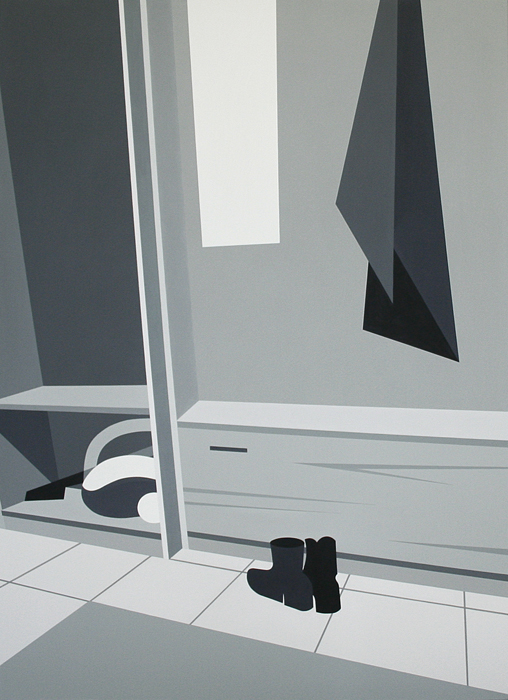
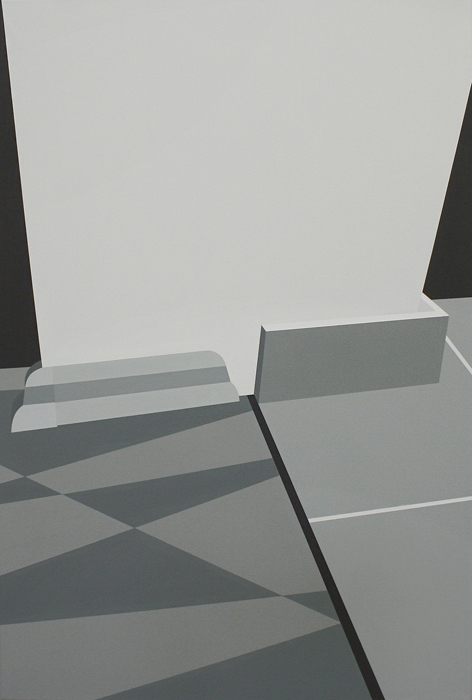
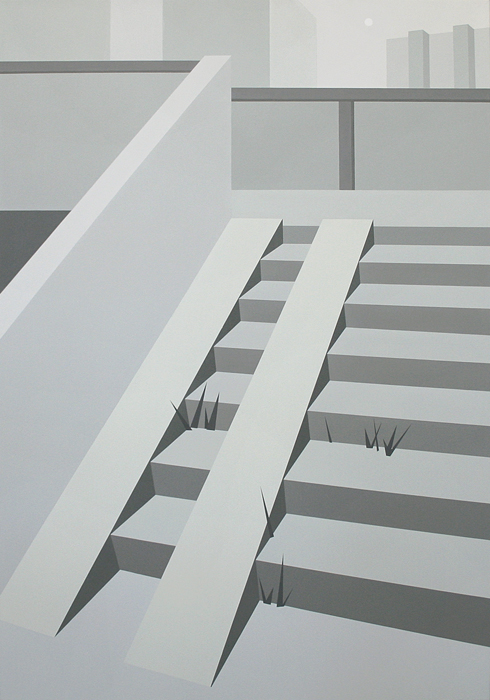
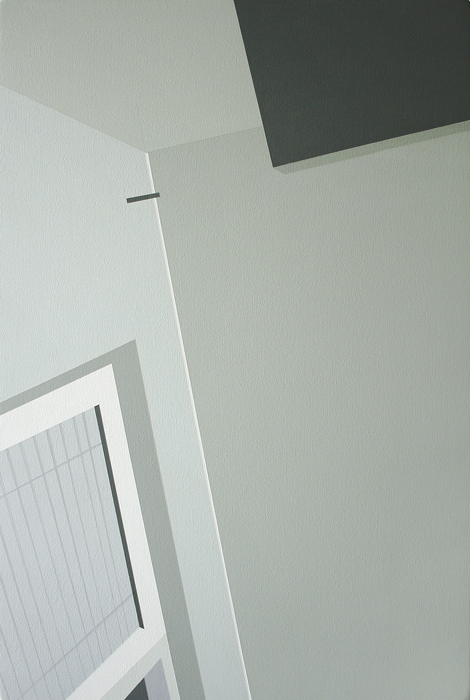

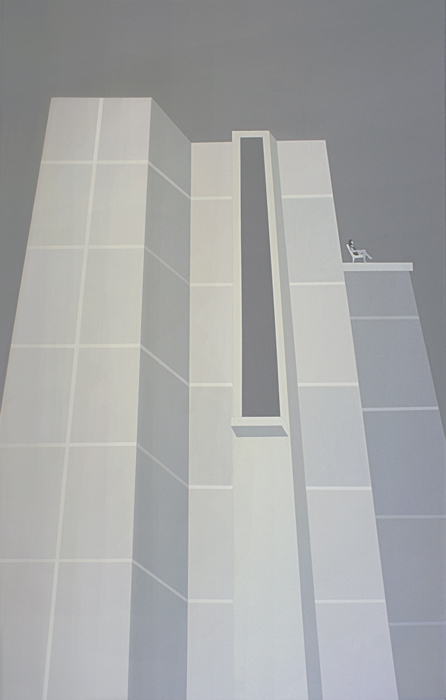
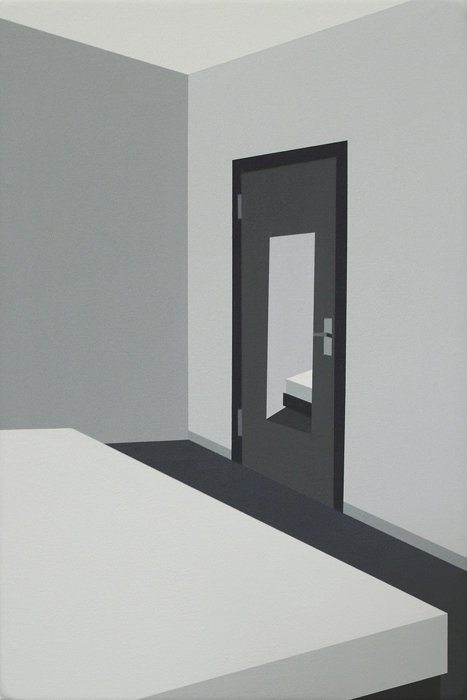
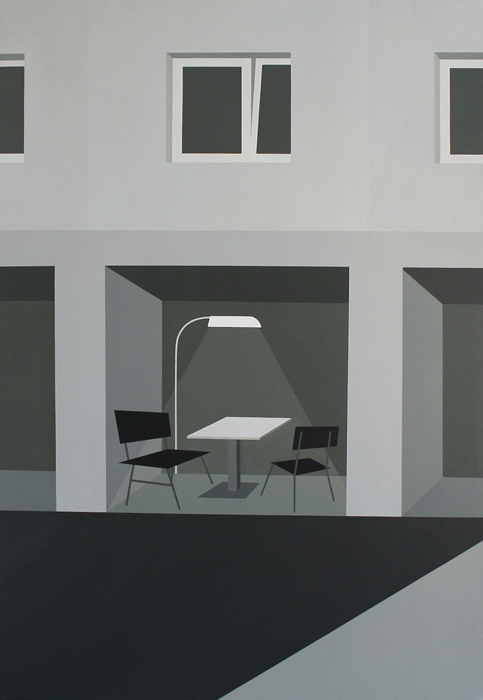
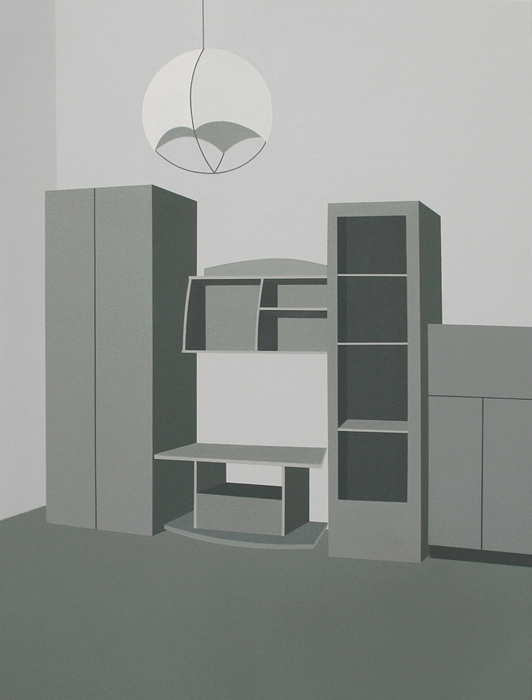
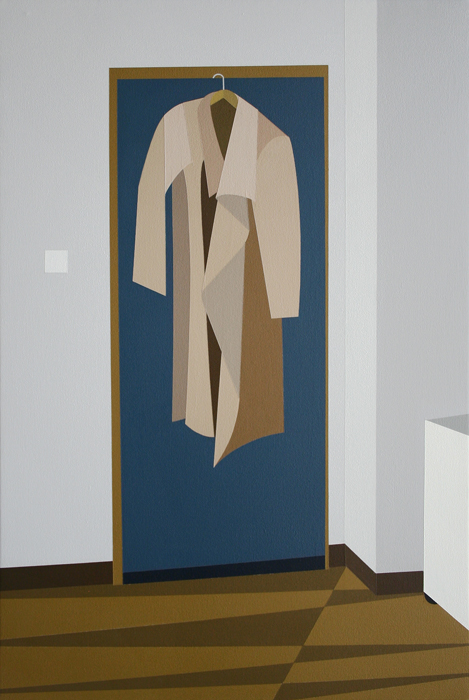
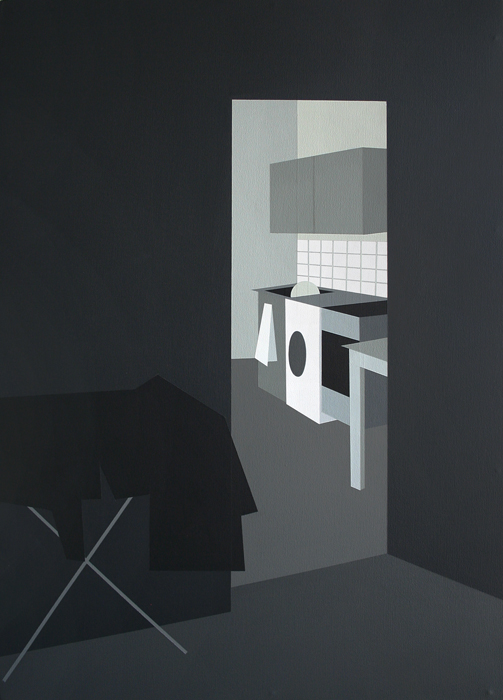
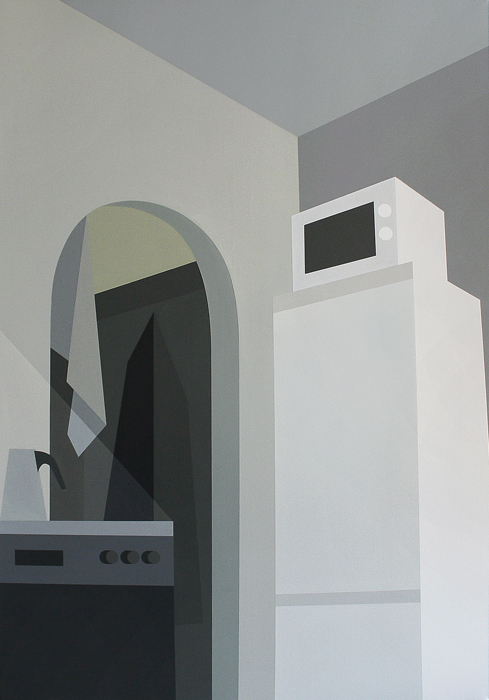
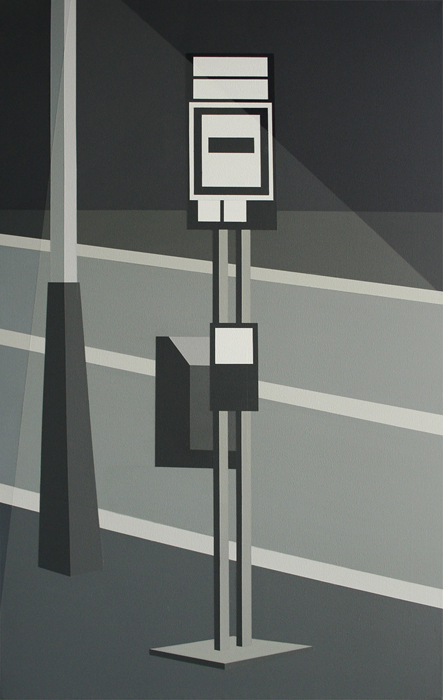
Does the need to tolerate imperfection cause anesthesia? Does the congestion of space cause the mental decline of its inhabitants? The Original Condition series was created for about a year. During this year, I changed my residence, studio and workplace and took part in three reconstructions. The question of the nature of the space and its adaptation to the owner’s measure has naturally become an urgent topic for me. The (anti) aesthetics of the Petržalka commonplace, which can be seen in interior photographs in advertisements of real estate agencies. Storage solutions for clothes and shoes in small spaces, quick-fix of damaged floating floor, plasterboard arches, plastic windows and window sills, aluminum blinds. Limited placement options for individual pieces of furniture. Improvisation, temporary solutions, ergonomic compromises. Petržalka’s exteriors contrast with their monumentality with economical housing units. The blocks of flats are made up of long lines converging somewhere in the distance, the space is generous and alienated. The geometric strictness is disturbed by the organicity of cracked asphalt, rubbish and tufts of grass breaking through the concrete. Terraces stimulate my imagination, they are like projection screens where anything can happen. The original state is a reflection of a place that I consider to define my identity. I am trying to free my perception from a purely pragmatic framework. I resist the aesthetic anesthesia that arises in connection with places that are part of the daily routine. I believe that there is no need to escape and that there is a possibility to transform.